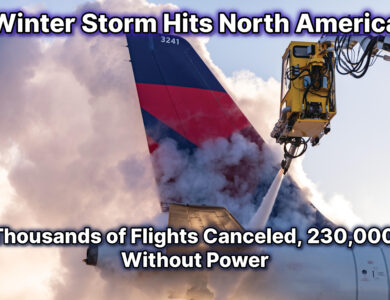Hurricane Melissa: Category 5 Storm Halts Aviation Operations

Category 5 Hurricane Melissa, currently affecting the Caribbean, has severely disrupted all civil aviation activities in the region with its intense winds and torrential rains. According to data from the National Hurricane Center (NHC), the hurricane’s sustained wind speeds have reached up to 280 km/h.
Air Traffic and Airport Operations Suspended
Jamaica’s Norman Manley (Kingston) and Sangster International (Montego Bay) airports have been completely closed for safety reasons. All scheduled and charter flights to and from the affected region have been canceled, while airlines have relocated their aircraft to safer airports outside the hurricane’s projected path. The U.S. Federal Aviation Administration (FAA) and regional air traffic authorities have declared airspace within 500 nautical miles of the storm’s center a “danger zone.”
Meteorological and Aviation Observations
Reconnaissance flights by NOAA and the U.S. Air Force’s Hurricane Hunter aircraft reported a rare phenomenon inside the hurricane’s eye. Within the structure known as the “stadium effect,” the sky was completely clear, and winds temporarily calmed. The mission crew also observed several flocks of birds within this calm zone. Experts note that the intense winds surrounding the eye likely prevented the birds from escaping, forcing them to seek temporary refuge inside the storm’s eye.
Flight Safety and Planning Measures
Aviation authorities have issued warnings for all flights along the hurricane’s path to be rescheduled, alternate airports to be designated, and fuel reserves to be increased. Meteorological services predict that the hurricane will move northwest within the next 24 hours, approaching Cuba’s eastern coastline—potentially prompting further airspace closures.
As one of the most powerful tropical systems recorded in recent years, Hurricane Melissa has raised the need for a comprehensive reassessment of aviation safety parameters. The International Civil Aviation Organization (ICAO) announced that it will await the hurricane’s full passage before authorizing the controlled reopening of the region’s airspace.



